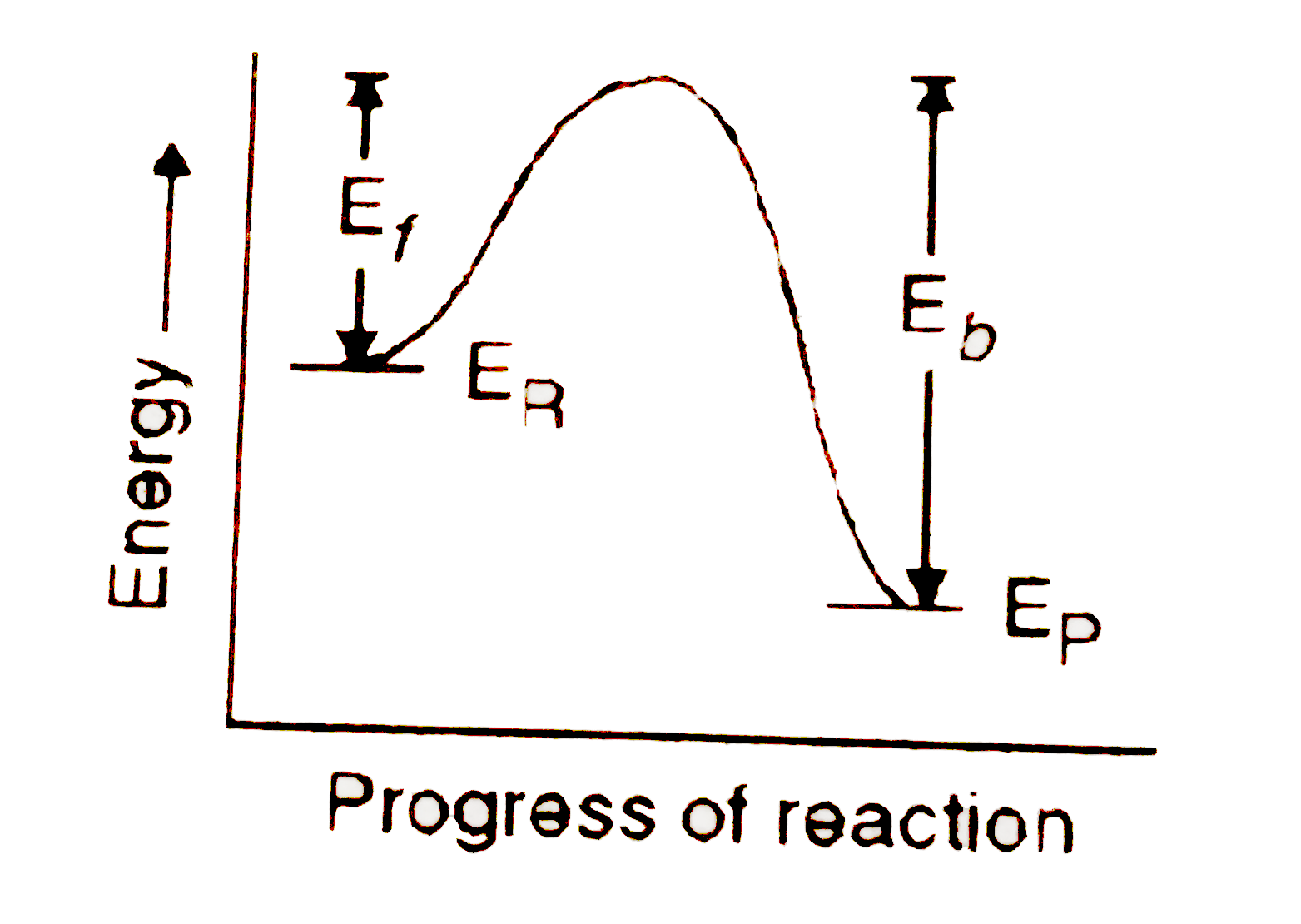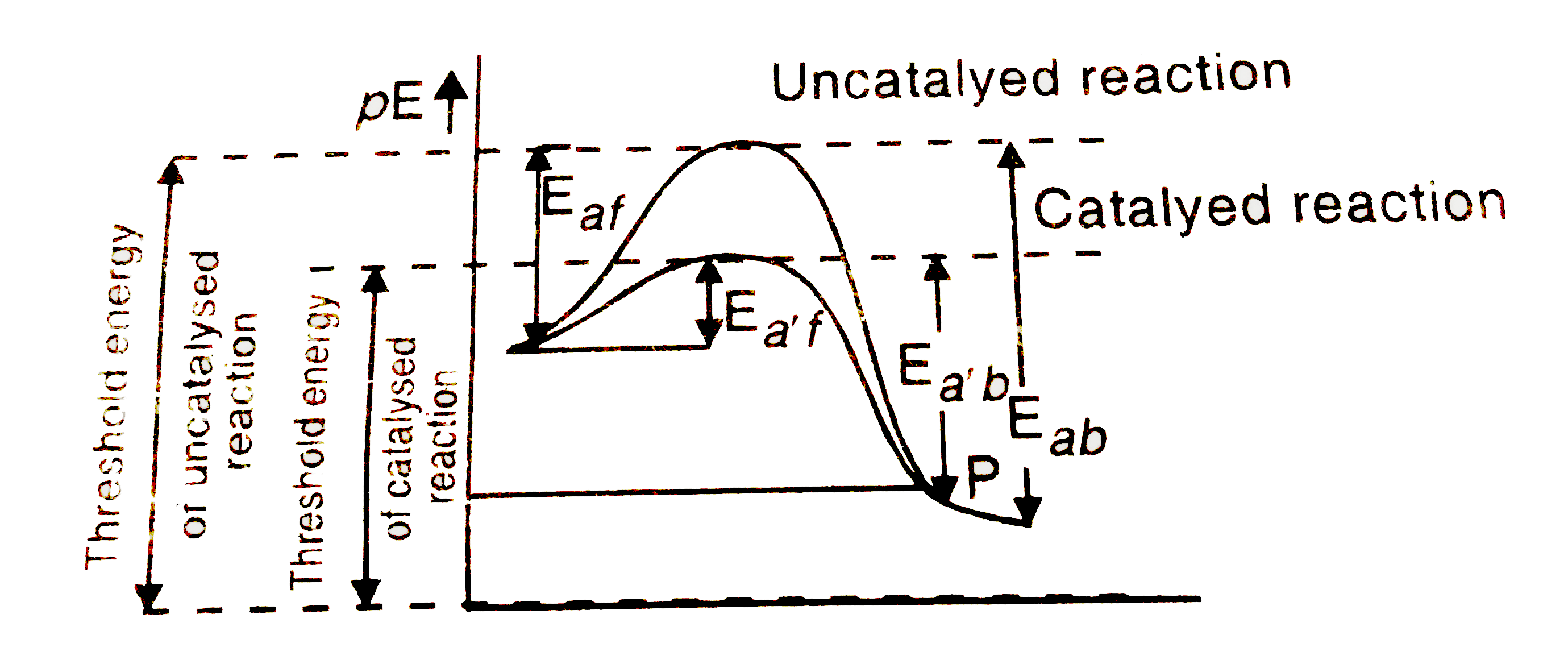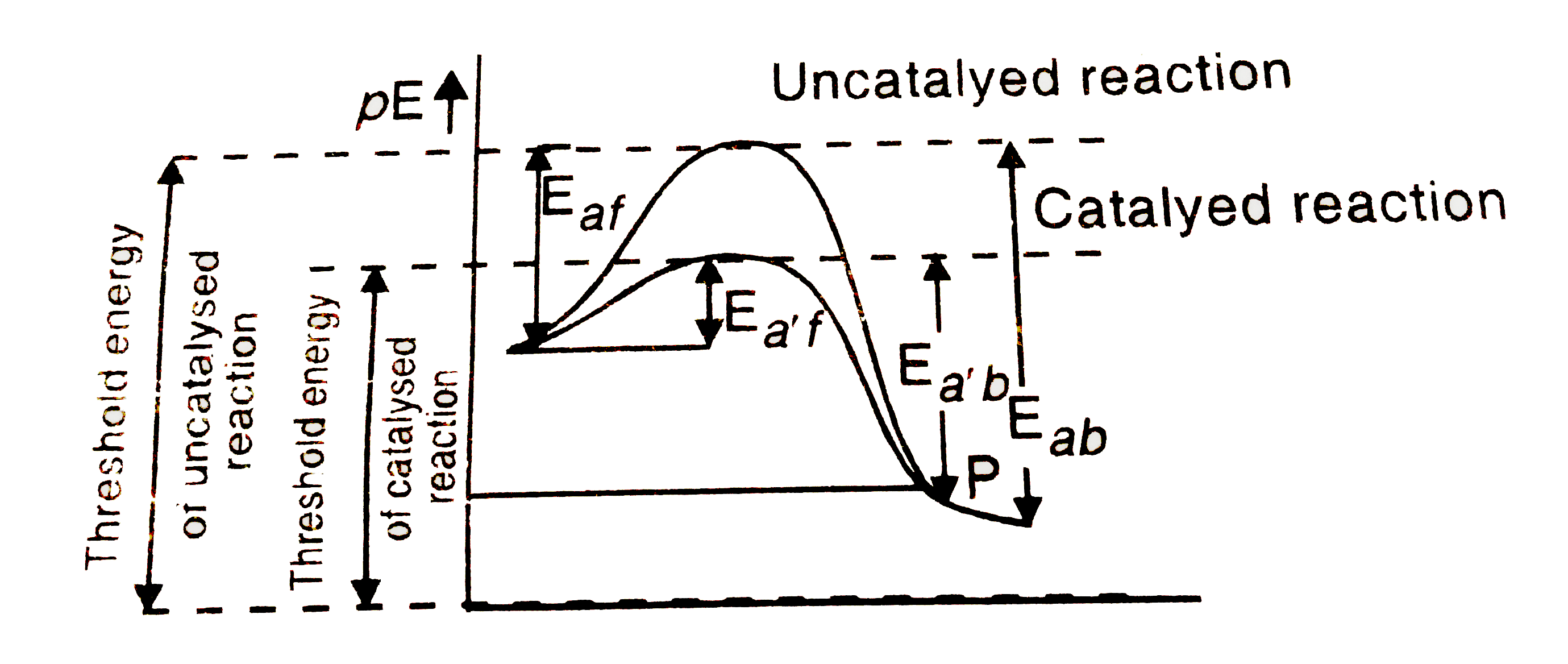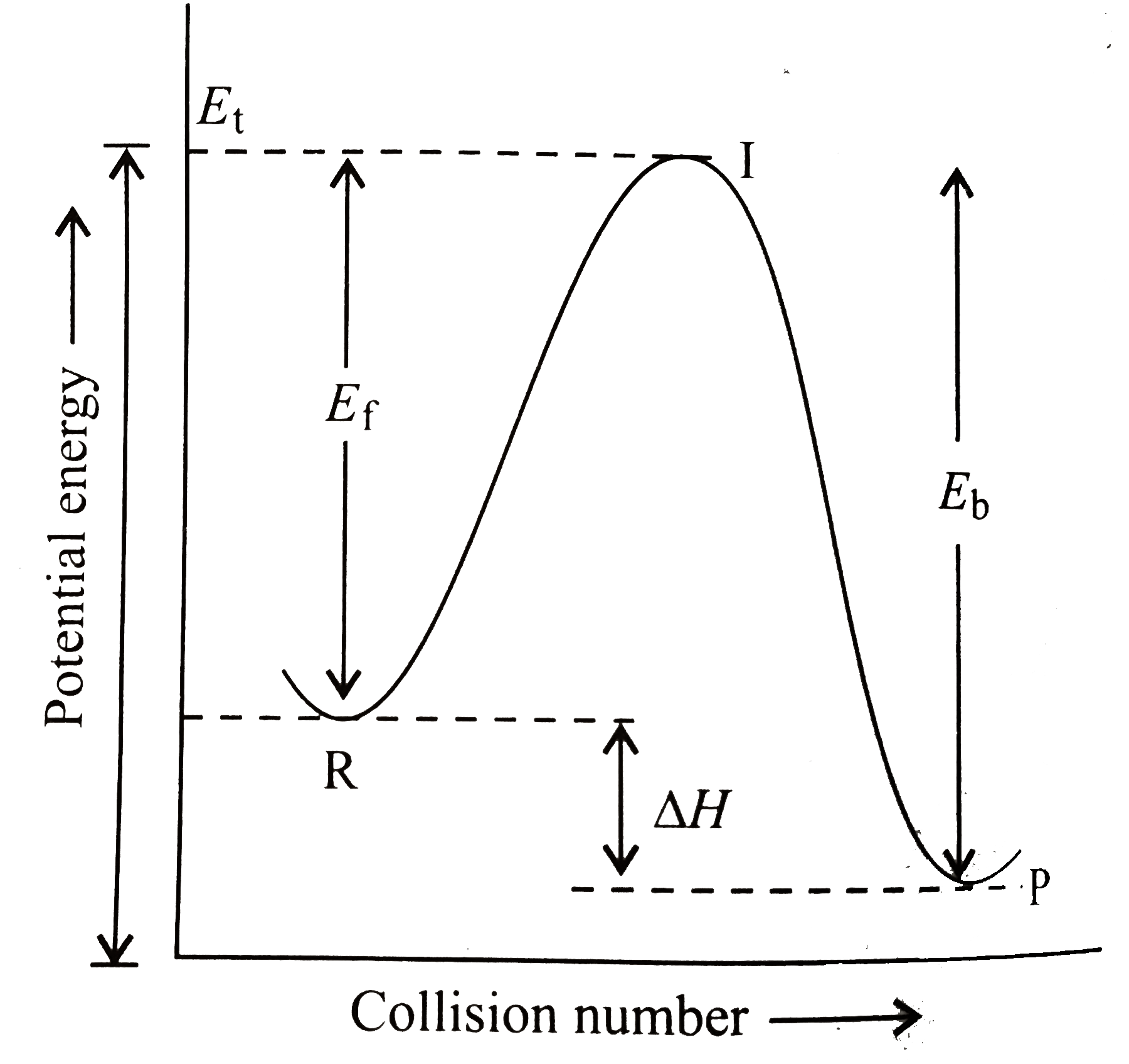If Ef and Er are the activation energies of forward and backward reactions and the reaction is known to be exothermic, then
Ef<Eb
Ef>Eb
Ef=Eb
Data insufficient to predict
The correct Answer is:A

For an exothermic reaction Eb−Ef.
Topper's Solved these Questions
- RATES OF REACTIONS AND CHEMICAL KINETICSBOOK - DINESH PUBLICATIONCHAPTER - RATES OF REACTIONS AND CHEMICAL KINETICSEXERCISE - Revision Question
168 Videos
- RATES OF REACTIONS AND CHEMICAL KINETICSBOOK - DINESH PUBLICATIONCHAPTER - RATES OF REACTIONS AND CHEMICAL KINETICSEXERCISE - Selected Straight
49 Videos
- PHYSICAL AND CHEMICAL EQUILIBRIABOOK - DINESH PUBLICATIONCHAPTER - PHYSICAL AND CHEMICAL EQUILIBRIAEXERCISE - ULTIMATE PREPARATORY PACKAGE
13 Videos
- REDOX REACTIONSBOOK - DINESH PUBLICATIONCHAPTER - REDOX REACTIONSEXERCISE - Reasoning Type Questions
4 Videos
Similar Questions
If the activation energies of the forward and backward reactions of a reversible reaction are Ea(f) and Ea(b), respectively. The ΔE of the reaction is ………..
View SolutionThe energy profile diagrams are very important tool through which, we predict lot of things, like the amount of activation energy of the catalysed and uncatalysed reaction as well as for the backward reaction and forward reaction. Thershold energy of the catalysed and uncatalysed reaction. The graphs representing the energy profile diagram for catalysed and uncatalysed reactions are given below :

The graph of the lower energy barrier is the energy profile diagram for the catalysed reaction adn of the higher barrier is the energy profile diagram of uncatalysed reaction.
From the graph, it is clear that EafandEab are the activation energy of the respectively. EafandEab are the activation energy of the catalysed forward and backward reaction respectvely
The reaction which occurs by absorption of heat is known as endothermic reaction and by release of heat is known as exothermic reaction
For exothermic reaction, ΔH is negative and for endothermic reaction, ΔH is positive
From Arrhenius equation, we know that k=Ae−Ea/RT where k is rate constant which signifies effective number of collisions. A is known as Arrehnius constant, or maximum rate constant of frequency factor which signifies maximum number of collisions with proper orientation of reacting species per mole per second.
The catalysed reaction occurs at 500 K and the uncatalysed reaction occurs at 800 K in such way so that the rate of catalysed reaction and uncatalysed reaction becomes equal as well as the catalyst lower down the energy barrier by 60 J.
Answer the following questions on the basis of above paragraph
From the above information givenin comprehension as well as from question no. 4, what will be the value of activation energy of the calalysed backward reaction ?
View Solution
Knowledge Check
When the activation energies of the forward and backward reactions are equal, then :
AΔU=0,ΔS=0BΔU=0,ΔG=0CΔS=0,ΔG=0DOnly ΔU=0For the reaction, for which the activation energies for forward and backward reactions are same, then:
AΔH=0BΔS=0CThe order is zeroDNone of theseThe energy profile diagrams are very important tool through which, we predict lot of things, like the amount of activation energy of the catalysed and uncatalysed reaction as well as for the backward reaction and forward reaction. Thershold energy of the catalysed and uncatalysed reaction. The graphs representing the energy profile diagram for catalysed and uncatalysed reactions are given below :

The graph of the lower energy barrier is the energy profile diagram for the catalysed reaction adn of the higher barrier is the energy profile diagram of uncatalysed reaction.
From the graph, it is clear that EafandEab are the activation energy of the respectively. EafandEab are the activation energy of the catalysed forward and backward reaction respectvely
The reaction which occurs by absorption of heat is known as endothermic reaction and by release of heat is known as exothermic reaction
For exothermic reaction, ΔH is negative and for endothermic reaction, ΔH is positive
From Arrhenius equation, we know that k=Ae−Ea/RT where k is rate constant which signifies effective number of collisions. A is known as Arrehnius constant, or maximum rate constant of frequency factor which signifies maximum number of collisions with proper orientation of reacting species per mole per second.
The catalysed reaction occurs at 500 K and the uncatalysed reaction occurs at 800 K in such way so that the rate of catalysed reaction and uncatalysed reaction becomes equal as well as the catalyst lower down the energy barrier by 60 J.
Answer the following questions on the basis of above paragraph
From the above information given inthe compreshension, if the normal energy of the reactant is 50 J and that of the product is 20 J. then what will be the activation energy of the uncatalysed backward reaction ?A170 JB180 JC160 JD190 J
The activation energies for forward and backward reactions are EfandEb respectively. If the reaction is exothermic then which is true regarding relation of activation energies?
View SolutionA colliison between reactant molecules must occur with a certain minimum energy before it is effective in yielding Product molecules. This minimum energy is called activation energy Ea Large the value of activation energy, smaller the value of rate constant k. Larger is the value of activation energy, greater is the effect of temperature rise on rate constant k.

Ef= Activation energy of forward reaction
Eb= Activation energy of backward reaction
ΔH=Ef−Eb
Ef= threshold energy
The activation eneries for forward and backward reactions in a chemical reaction are 30.5 and 45.4kJmol−1 respectively. The reaction is
View SolutionIf the activation energy of both the forward and the backward reactions are equal, then change in internal energy is
View SolutionEnergy of activation of forward and backward reaction are equal in case (numerical calues) where
View SolutionFor a hypothetic reaction A→B, the activation energies for forward and backward reactions are 19 kJ/mole and 9 kJ/mole respectively. The heat of reaction is
View Solution